
Times Concise Altas of World History
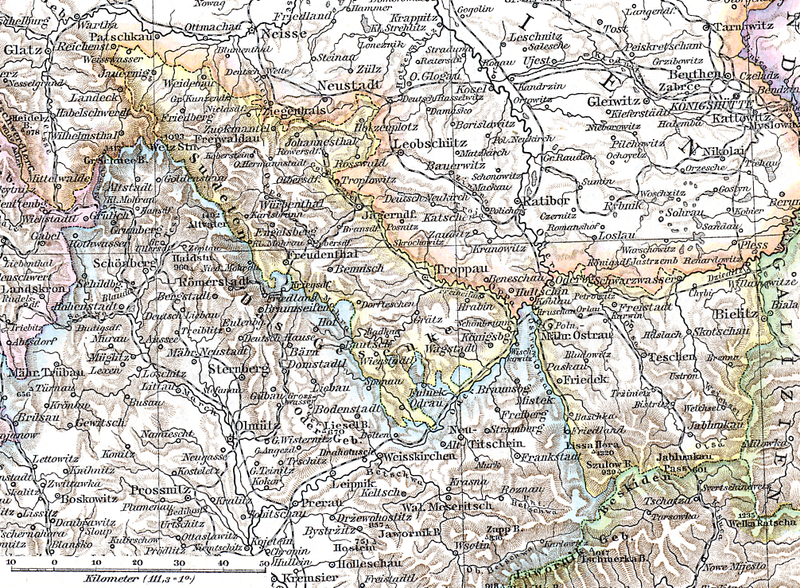
Andrees Hand-Atlas 1903
Josef Kolbe was born on 2 March 1873 in the small town of Röwersdorf in Austrian Silesia, the rump of Silesia remaining in Habsburg hands after the major, richer part was ceded to Prussia in 1742, following the First Silesian War. The area in which he was born was strictly speaking an enclave of Moravia, the so-called Hotzenplotzer Enklave after the town of the same name, which sticks rudely into the Prussian lands as a reminder that the whole of Silesia once belonged to the Habsburg crown.
The Kolbes can be traced back to the earliest church records, starting in the area at the beginning of the 17th century, but their name is already mentioned in the Gedenkbuch der Gemeinde Röwersdorf as far back as the mid 1500s. They no doubt arrived with one of the waves of settlers from Flanders, Westphalia, Franconian Thuringia and Saxony, who came to the area in the 12th, 13th and 15th centuries to clear the land and make it fit for agriculture. Josef’s earliest known ancestor was Georg, born c1625 whose great grandson, also Georg born c1708, was a farmer.
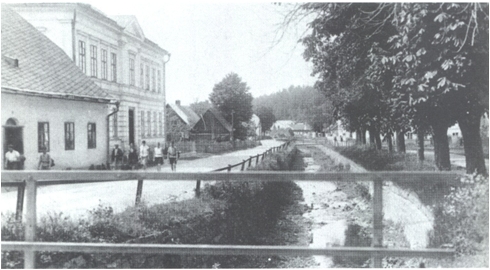
Chronik der Gemeinde Röwersdorf
Josef’s father Johann (1829-1894) was the first Kolbe of his line to receive higher education, training to become a teacher in Jägerndorf and Olmütz before coming back to Röwersdorf in 1858 to take up the position of second teacher at the local school. He was living on the premises of the old schoolhouse, which was later to become the town hall (since demolished), when he married his first wife, Josefa Bradel, in 1860. Following the birth of their first child, the couple moved to house no. 116. They had five children, three of whom died in infancy, before their mother followed them to an early grave in c1871. Johann’s second wife, Josefa Franziska Gödel, whom he married in 1872, was the mother of Josef Kolbe.

In June 1871, following the death of the head teacher of the Röwersdorf school, Johann Kolbe was nominated to the vacant position on a temporary basis. He obviously enjoyed the status, triggering a move to Lower Austria where the records show him in charge of the village school in Nonndorf in 1874 and head teacher of the school in Harth in 1878, where Josef was presumably one of the pupils. As both places were in the Austrian heartland and remain so to this day, the family was fortunate not to suffer the at times brutal deportation in 1945 of the German speaking inhabitants from Austrian Silesia, which had by then been incorporated into Czechoslovakia. Johann was still teaching up until a year before his death in Znaim in 1894. In the meantime he had ensured that his sons received the best education possible, with Josef attending the grammar school in Horn, Lower Austria, and later the Officer Cadet School in Timişoara, now in Romania.
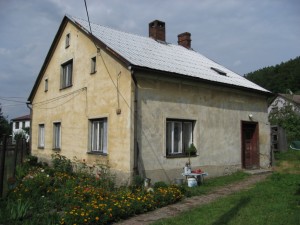 Josef Kolbe was born here in 1873 | 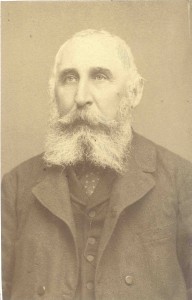 | 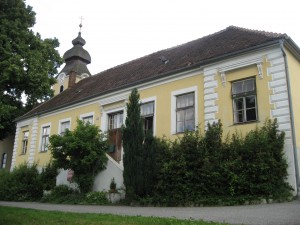 Johann Kolbe was the head teacher | 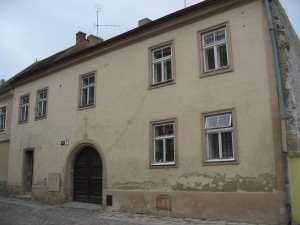 Johann Kolbe died here in 1894 |
Sources:
Concise Altas of World History, The Times, 1986
Geschichte und Topographie der Landschaft Hotzenplotz, Eduard Richter, 1860-1890
Gedenkbuch der Gemeinde Röwerdorf, Karl Schneider, 1932: http://mysite.bplaced.net/Gedenkbuch/index.html
Chronik der Gemeinde Röwersdorf, Karl Schneider, 1955
http://de.wikipedia.org/wiki/Österreichisch-Schlesien
http://en.wikipedia.org/wiki/Austrian_Silesia
German settlement of the Sudetenland: http://www.guenter-ofner.at/index.php/miscellen/sprachliches/70-woher-und-warum-wanderten-deutsche-in-die-boehmischen-laender-ein
Röwersdorf (Třemešná) Parish Registers: http://digi.archives.cz/da
Dr. Erich Rabl, former teacher at the Horner Gymnasium and local historian
